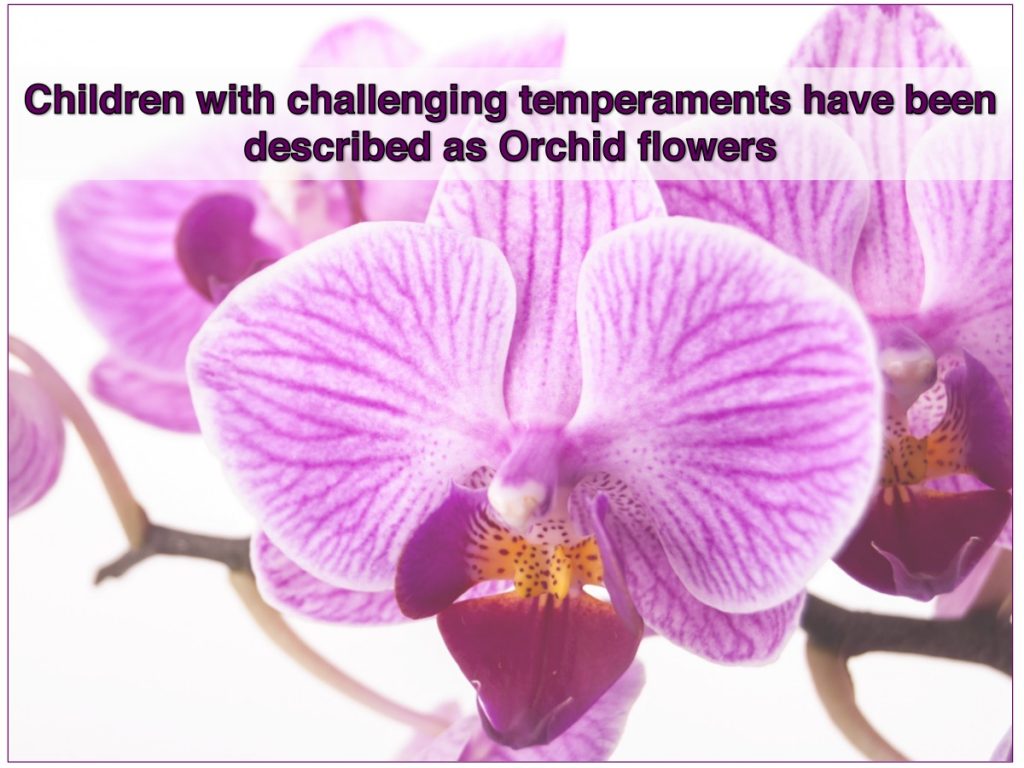
Each of us has a unique temperament. It influences our relationships, achievement in school, and physical and mental health. Although children are born with a temperamental disposition, temperament can change. We do not choose our temperament and parents do not create a temperament. Rather, our biology and experiences interact to determine our temperament.
Some temperaments can be more challenging than others. Children with challenging temperaments have been described as orchid flowers. In unfavorable conditions, orchids wilt and wither. Yet, with suitable loving care, orchids can bloom in a way that is unique and magnificent.
In the same way, a child can thrive with supportive care. Parents adapt their behavior and environment to fit the child’s temperament. That is, they create goodness of fit. Through sensitive parenting, a child learns to respond in new ways and improve self-regulation.
-
- Anterior cingulate cortex
- part of the brain that helps control emotional impulses
- Dimension
- more or less of a behavior
- Goodness of fit
- occurs when your expectations are compatible with a child’s temperament
- Negative reactivity
- a tendency to react in a negative manner
- Positive reactivity
- a tendency to react in a positive manner
- Prefrontal cortex
- the decision-making area of the brain
- Self-regulation
- a child’s ability to concentrate, to manage emotions, and to control impulses
- Temperament
- how a person approaches the world